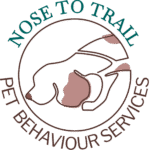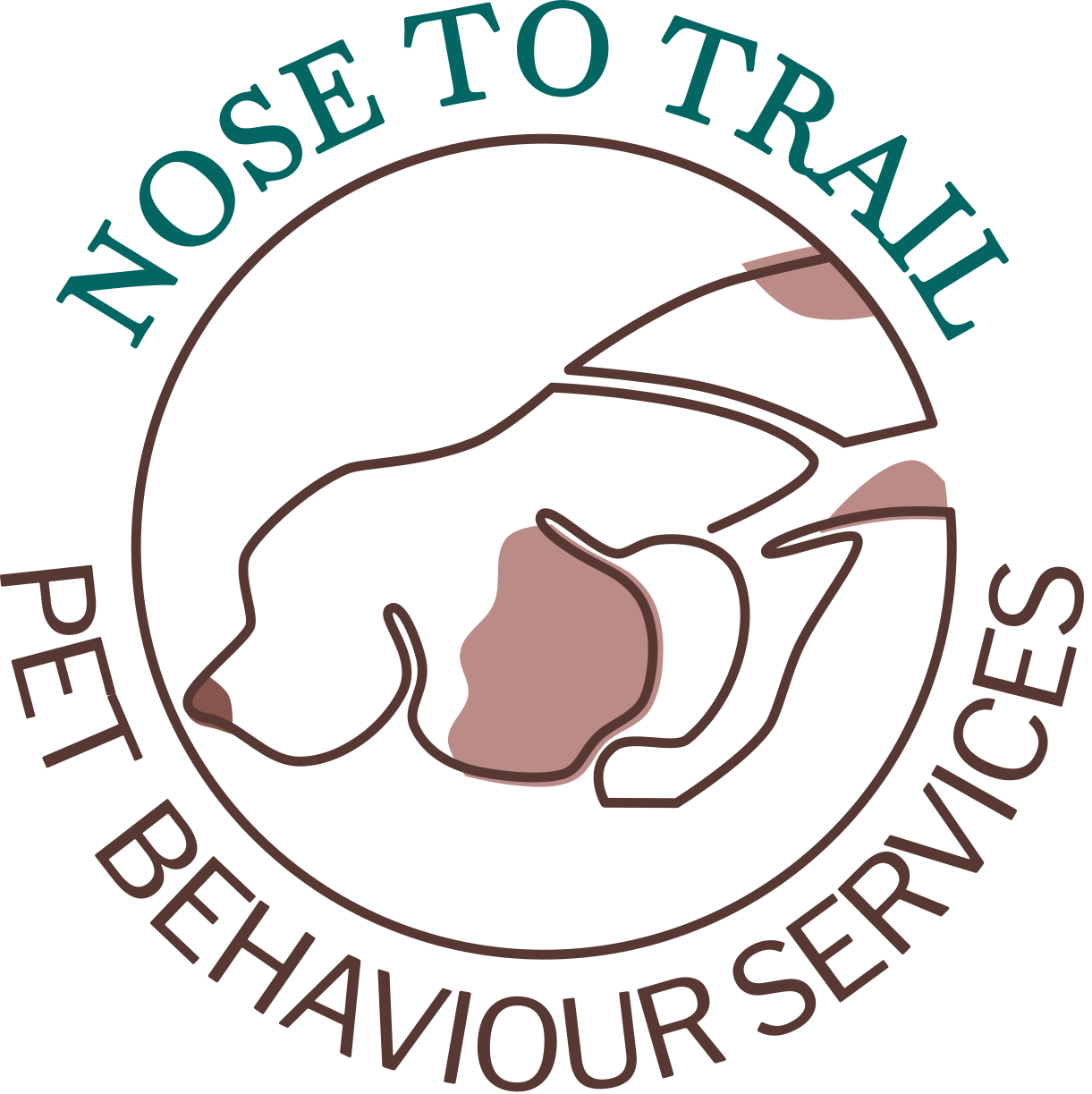Looking for the short answer? Then that would be a big fat NO!
But if you have 2 minutes, then read on to understand why.
We live in a world where information is always at our finger tips. “Smart” devices are everywhere. Siri in your phone, Alexa and the other home hubs are there ready to give you the answer to any question you may have. So it is understandable that when people have a question on their dog’s behaviour the first place they turn to is the internet. We are so used to getting answers and advice instantly – why shouldn’t we be able to do the same with our pets?
For myself and many other professional dog trainers and clinical animal behaviourists, this can be a source of dread. I’m not being dramatic when I let you know that I have actually lost sleep over the “advice” I have seen being given on social media channels like Tik Tok, Facebook and Instagram. I actually have and I know other professionals do to.
One specific example was in relation to a Facebook post.
An owner, was looking for advice on why her dog had suddenly stopped walking with them. She described the dog as being “stubborn” and “no longer wanting to walk”. She was given advice to a) not take the dog on walks any more to “show it a lesson”, b) to use a prong collar so that when it fell behind it would hurt and it would have a reason to walk again, and c) “just drag it” “its only a dog”.
All of these make my heart sink. There was no compassion for the dog at all.
Not one of these bits of advice looked at WHY the dog may no longer want to walk.
Not one suggested that really the best thing this owner should do is contact a vet!
If a vet deemed this dog to be healthy (which is important as there could be medical reasons the dog no longer wants to walk far anymore e.g. osteoarthritis!) then a professional reward based dog trainer would be able to help, or a behaviourist, who could also look at the WHY the dog did not want to walk.
Of course I messaged and advised that they should visit the vet and then seek professional help, but I still lay awake at night thinking was this poor dog going to be forced to walk using some horrific method that had been given by a seemingly well meaning individual, but someone who does not have the knowledge, or experience required to be offering that type of advice!
There lies our problem. In the U.K. the industry I work in, the animal training industry, is unregulated.
The titles of Clinical Animal Behaviourist and Dog Trainer are not protected. This means that anyone, including you reading this! Could just wake up one day, set up a website and decide to call themselves a trainer or behaviourist. Looking at the number of dog trainers appearing in my local area alone there seems to have been an explosion of people setting up in the last 18 months, perhaps owing to lockdowns and wanting career changes? However there is no set requirement on what you need to be a dog trainer. Not in the same way that there is to be a dentist, doctor or lawyer. Nor is it illegal to pretend to be a dog trainer if you have no knowledge or experience at all, whereas if someone pretends to be a vet – that is actually a crime! Not that this seems to be realised by people on Facebook forums.
I have seen several posts in the last week alone where pet dog owners have posted images of their dog’s wound, lump or bump onto Facebook “groups” asking people what it is and what they should do to help their pet. There should only be one answer – go to the vet!!!!
For those people trying to help who say “it is a cyst” or “my dog had that and we gave him a paracetamol”, what you are actually doing is in breach of the Veterinary Surgeons Act. You can’t diagnose, or prescribe or dispense medication unless you are a vet! So please, to those of you reading this, help me out! Next time you see these posts just advise they should go to the vet! I know some people worry about the cost of going to the vet, but they may find it cheaper to contact a team like First Vet who offer (legal) video consultations some of which you may get for free if you have a pet insurance policy.
Personally I would welcome regulation into our industry. I know that I have spent the last 10 + years gaining the experience, qualifications and theoretical knowledge required to do my job to the best of my ability. Something I continue to do each year as I do CPD – Continued Professional Development, to keep my skills up to date.
However there are many “trainers” and “behaviourists” who do not welcome this regulation. My question to them is “why not?”. To me it suggests they know they would not meet the requirements to carry on working in this industry. Anyway, that is a topic for a whole other blog!
So how do you know who you can trust to help you with your dog?
Prepare yourself for acronyms, because they come by the bucket load in the dog training industry!
The simplest way is to check the ABTC website: https://abtc.org.uk/practitioners/
The ABTC stands for the Animal Behaviour and Training Council. It was set up to put in some self-regulation into the animal training industry for the very reasons I have outlined above, the fact there is no one regulating dog trainers!
If you search for a practitioner on the ABTC website, you will find both Animal Training Instructors (dog trainers) and Registered Clinical Animal Behaviourists. Which you need for your individual case I will cover in a later blog but both of these lists of individuals are people you can trust have been thoroughly assessed on knowledge, theory, experience and practical application in order to work with your pets.
To be on these registers, myself and other trainers/behaviourists are part of different organisations.
The organisation that assessed me for dog training was the APDT UK – The Association of Pet Dog Trainers.
I did my APDT Assessment in 2018 when I was working for Dogs Trust Dog School as the Head Coach of their Dog School Shropshire & Cheshire team. You are only invited to have your practical dog training assessment (where you have to train a room full of random dogs and their owners) after you have passed their long written theory test. The theory test ensures that you understand the methods of positive reinforcement, and the other quadrants. It also ensures that you know what the potential fall out can be and what damage can be caused from using punishment based techniques, and why they do not allow their members to use such methods. When you have done both of these they then grill you! You have 2 assessors questioning your every last move in your practical. Why did you do X, and not Y. As a trainer you have to be able to justify your choices and be able to adapt for the individual dogs you are training.
It was rigorous and I was terrified but that made me even more delighted when I passed with flying colours first time round. To me being able to be on the ABTC register as an Animal Training Instructor was the seal of approval that I was a good dog trainer! As lovely as awards are they are often given on a voting basis (popularity) or from people who don’t necessarily know the details of how I coach my clients and their dogs where as these assessments really do unpick that at a fine level.
The organisation that assessed me to be a Registered Clinical Animal Behaviourist was the APBC. The Association of Pet Behaviour Counsellors.
This was more recent and I passed my assessment in December 2020 when the APBC was permitted to assess their own members on their new assessment framework. Again this process was very rigorous. To be a provisional member I had to have the academic side already completed, which I did in 2013 when I passed my Master’s degree in Applied Animal Behaviour and Welfare from the University of Newcastle with a merit. I then had to supply case studies, videos of me working with clients and their pets to once again be grilled in a viva on all the “whys” of my choices.
Getting CAB status was a life goal for me. Although we may not have regulation in our industry, the fact that it is usually only CABs that insurance companies will pay to work with your pets goes some way to show that the members of the APBC who have CAB status are well regarded and respected for their knowledge and level of expertise.
It is worth noting that there are other organisations that Animal Training Instructors and Behaviourists can be part of. These include PACT (Professional Association of Canine Trainers) and FABC (Fellowship of Animal Behaviour Counsellors). So instead of trying to remember acronyms or worrying about which organisation is better my advise is this:
Next time you need help with your pet:
If there is a medical or health concern, speak to a vet!
If there is a training or behaviour concern go to the ABTC website type in your postcode and find an accredited, professional that you can trust to work safely and humanely with your pet. https://abtc.org.uk/practitioners/
You wouldn’t get your car MOT/Service done by checking social media, you would go to a garage and get help from a professional mechanic, so please do not do it with a living, breathing animal who is part of your family!
If you need training or behaviour help then you are most welcome to contact me at info@nosetotrail.co.uk if I am not in your local area then I am more than happy to point you in the direction of a colleague in your local area who would be able to help you.

